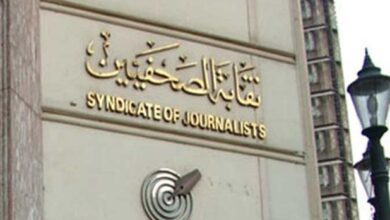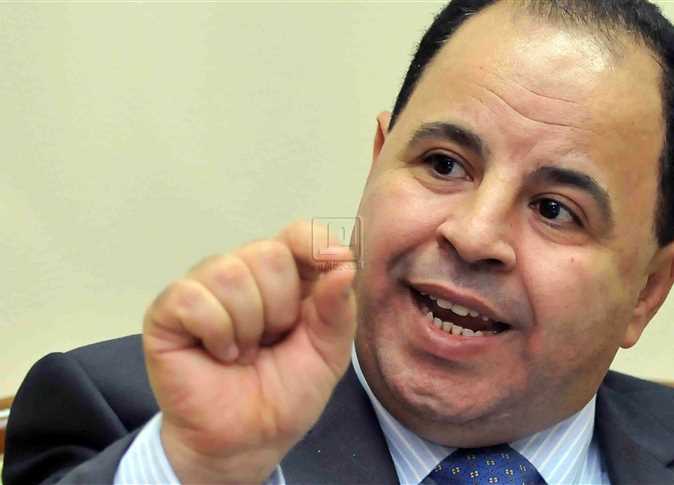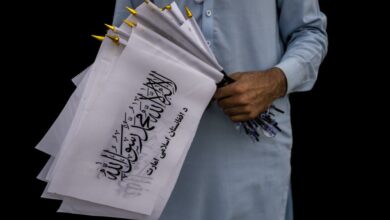The Free Officers wanted their 1952 coup to go down in history as a revolution of the people, but they had a problem: The people writing the historical record weren’t convinced. Several newspaper editors refused to promote the ideas of the military regime.
And so, former President Gamal Abdel Nasser decreed the nationalization of the press in 1960, along with a number of other establishments. All printed publications, previously owned by individuals or private institutions, became state property.
For more than 50 years, the state-owned press was the loyal servant of the regime. But the regime needed to pay dearly for that service.
Now that the regime has fallen, the state press not only seems anachronistic in its vision. With vast, unwieldy budgets, it has become a burden — one that the state might not be prepared to carry, in its current form, for long.
In the red
National newspapers came under the Shura Council’s authority after it was established in 1979, so the largest party in the council — the now-disbanded National Democratic Party in the past and the Muslim Brotherhood’s Freedom and Justice Party at present — appoints the heads of the state press institutions. At the beginning of September, FJP leader and Shura Council Speaker Ahmed Fahmy appointed six new chairpersons for national newspapers.
For some time, journalists and commentators have called for the state-owned press to have a greater measure of independence from the government. One hope is that such independence will prompt a measure of financial responsibility.
In May, the Supreme Press Council — the official owner of the state press — said the debt of the nationalized press exceeded LE12 billion.
When Nasser nationalized the assets of the press, he also nationalized their debts. In recent years, these papers have also suffered a loss of credibility due to their unflinching support of former President Hosni Mubarak’s policies, which eventually took a toll on their circulation.
Hamdy Rizq, former editor-in-chief of Al-Mosawar magazine, published by state-owned Dar al-Hilal, says one of the main reasons why national press institutions are indebted is the fact that for each journalist, there are six other employees working in back-office roles.
While state newspapers carry all governmental advertising, private companies prefer to go to privately-owned newspapers, which they believe have greater credibility, Rizq adds.
Under the heels of the state
As a result of nationalization, the ownership of Al-Ahram, Akhbar al-Youm, Dar al-Maaref, Rose al-Youssef and Dar al-Hilal was transferred to the state. In the 1950s and 1960s, the state established four other press institutions, namely the Middle East News Agency, Dar al-Tahrir, Dar al-Taawoun and Dar al-Shaab, as well as the National Company for Distribution, bringing the total number of state-owned press institutions to 10.
In 2009, the Supreme Press Council dissolved Dar al-Shaab and Dar al-Taawoun into several of the other institutions, bringing the number of state press institutions to eight, producing 55 publications.
When Egypt signed the peace treaty with Israel in 1979, the circulation of national press publications in the Gulf dropped — and so did the number of ads they posted in those publications. This was largely caused by Gulf opposition to the treaty signed by ex-President Anwar Sadat.
By the time relations warmed up again under Mubarak, Gulf media had strengthened and were then issuing their own publications, with little reliance on the international editions of Egyptian newspapers.
With the emergence of private newspapers in the second half of the 1990s and their subsequent rise, national newspapers had to go up against a real competitor that boasted more credible content that better reflected public opinion.
Despite the lack of official reports on the size of circulation of newspapers in Egypt, media experts say national newspapers receive bulk subscriptions from government institutions, which inflates their circulation figures.
Debt and corruption
Recent reports issued by the Finance Ministry state that national press institutions owe the ministry LE146 million for this year alone.
According to the state budget, the Finance Ministry should contribute LE50 million annually to the Supreme Press Council. However, ministry reports state that the institutions have requested an additional LE100 million this year, of which LE23 million are for retirement payouts.
Salah Eissa, a member of the Supreme Press Council, says national press institutions are indebted because they have failed to control costs while their annual profits continue to dip.
“Not only are they indebted to the Finance Ministry, but also to other government entities such as the electricity and insurance and social affairs ministries. They have failed to pay the overdue amounts for several years,” he says. “In addition, they owe money to commercial and investment banks from which they borrowed to finance their expansion projects.”
In 2005, former Finance Minister Youssef Boutros-Ghali decided to reschedule these debts, but only Al-Ahram and Akhbar al-Youm are able to meet even these rescheduled debts.
Hesham Kassem, a publisher and expert on the state press, says he thinks the absence of a proper wage policy is one of the main reasons why these institutions are heavily indebted.
“For instance, Al-Ahram has about 12,000 employees, of whom only 2,000 are journalists. Most of them do not go to work but still receive their salaries and other privileges,” Kassem says. “Officials at Al-Ahram know about that and say that the total amount of salaries paid each month amounts to LE20 million.”
He adds that he once heard Ibrahim Nafaa, former chairman of Al-Ahram, describe the losses made by national press institutions as “the cost of defending the regime of Mubarak, which the state is obliged to meet.”
Reports to the Shura Council by the Central Auditing Organization have shown that Al-Ahram and Akhbar al-Youm paid out LE110 million in “presents” in 2010 alone.
“Those gifts went to sources in government bodies as tokens of gratitude for the information they gave to the presidency under Mubarak,” adds Eissa.
Eissa explains that it would be difficult to find out the identity of the people who sent the gifts or those who received them because that practice was considered legitimate under the former regime, and there are hardly any documents to prove those gifts were sent at all.
Finding a solution
Kassem says he thinks the state should force the less serious employees at these institutions into early retirement, which would alleviate some of the financial pressure.
Rizq proposes a more drastic solution. He says the institutions should be privatized and become holding companies regulated by an independent media authority instated by the new constitution.
Rizq suggests that shares in the press institutions be divided so that 20 percent would be in the hands of the employees, 30 percent floated on the stock market to generate revenue, and the remaining 50 percent equally split between the state and the banks to which the institutions are indebted.
Article 16 of the current draft of the proposed new constitution says: “The National Authority for Journalism and Media manages and develops state-owned press and media institutions. They also manage their assets, maximize national investment in them and ensure their compliance to good technical, managerial and economic performance patterns.”
But the same chapter grants the president the right to appoint the head of that authority, subject to the approval of the Shura Council. The head can then appoint the remaining members of the authority.
Eissa rejects that article, saying it does not differ much from the stipulation in the 1971 Constitution that gave the Shura Council a similar role. If passed, the changes would mean that the presidency would hold more power over the state media than it does now.
From a technical perspective, it appears that most national press institutions lag behind when it comes to electronic media. Alexa, an international service that ranks websites according to their visitor traffic, says the private newspaper Youm7’s website is the sixth most-visited in Egypt, while Al-Masry Al-Youm ranks 26th and Al-Watan newspaper ranks 34th.
While Al-Ahram’s website comes in 18th, the next website for a national press institution is that of Al-Gomhurriya, which is owned by Dar al-Tahrir and comes in 139th, even though most national press institutions have web portals.
“Their low ranks are not surprising because the leaderships in those institutions do not want to develop them, fearing the younger generation will exploit the new technology to oust them from their positions,” Kassem says. “If those papers wish to remain in the competition, they have to use the new digital criteria for journalistic work, or else risk devastation.”
Translated by Dina Zafer
This piece was originally published in Egypt Independent's weekly print edition.



